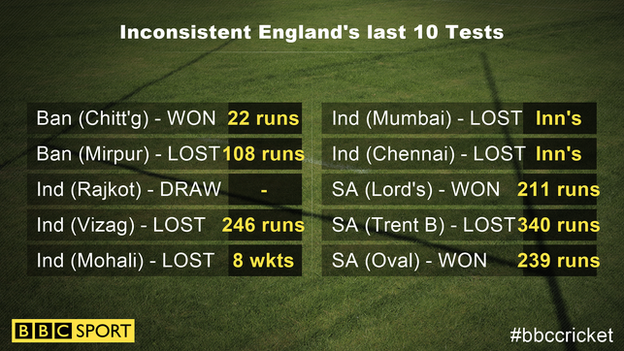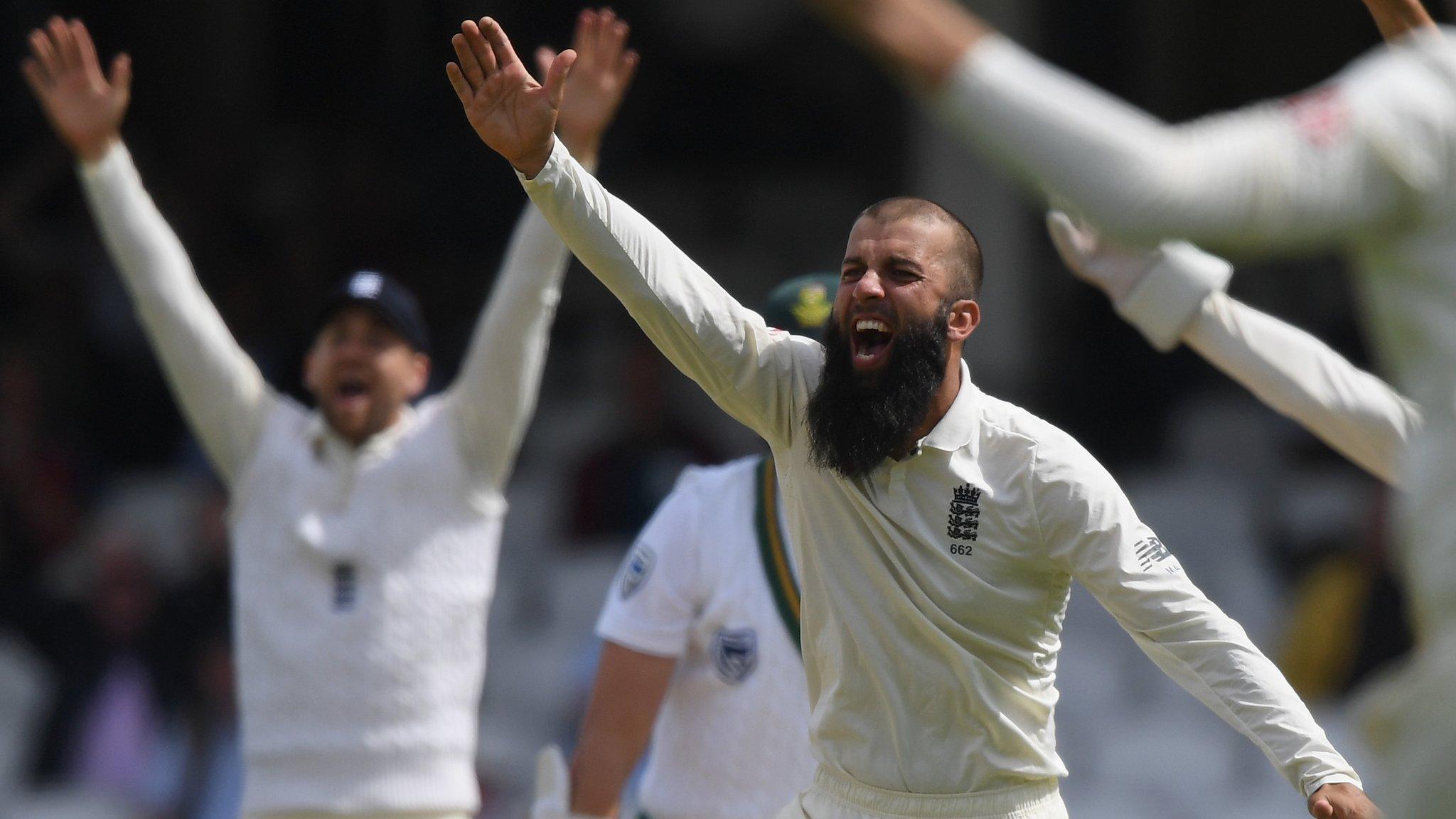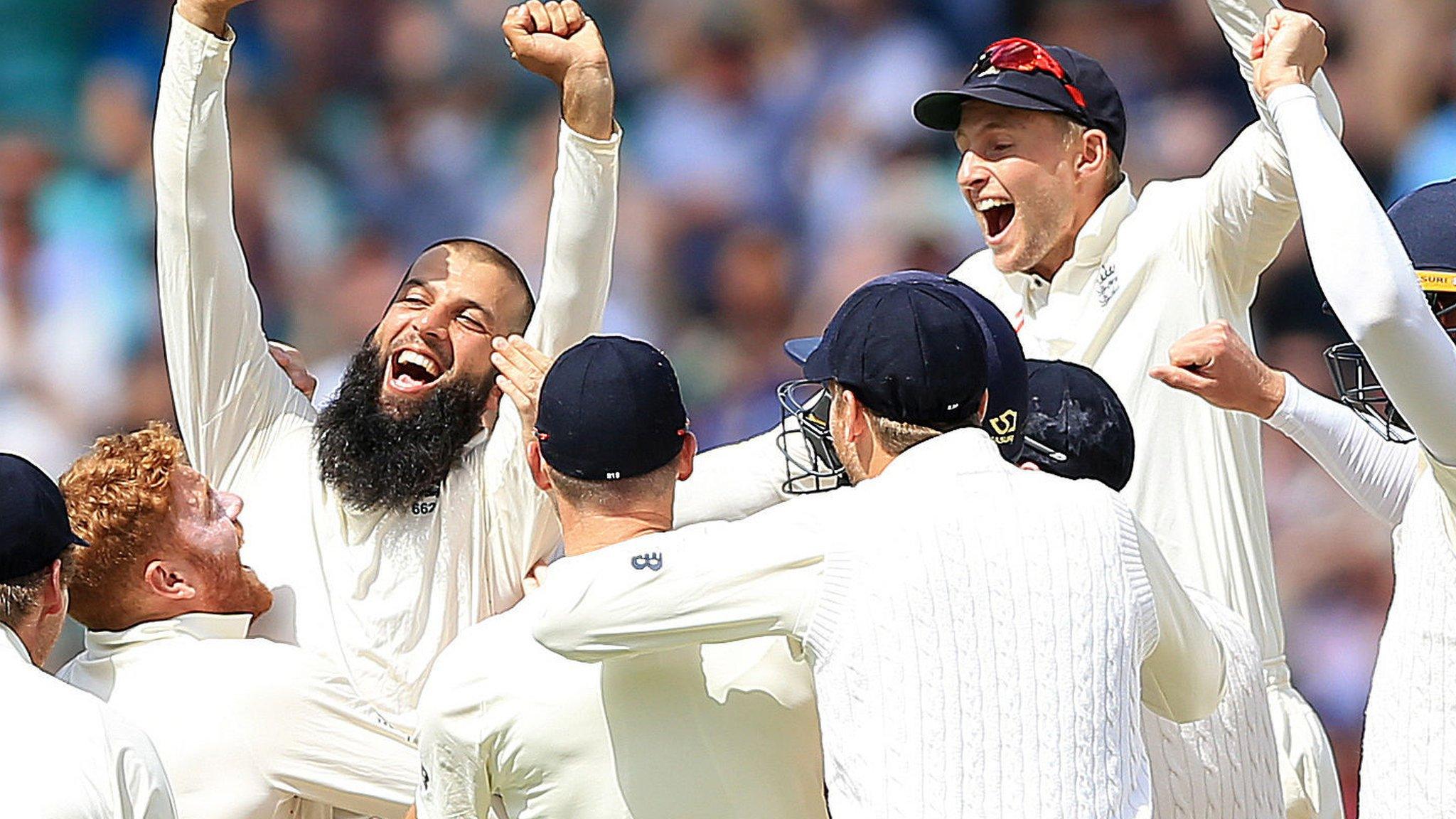Jonathan Agnew: England must back up victory over South Africa
- Published
Despite the grumbling at the criticism they received following the heavy defeat in the second Test against South Africa, England will have probably admitted in private that what happened at Trent Bridge wasn't good enough.
Everybody sitting in the stands, listening to the radio or watching on television knew they played badly.
Was the talk from outside the team the kick up the backside they needed to get their game in order, or did it come from within? We'll probably never know.
What we can say is that England won the third Test at The Oval by 239 runs, taking a 2-1 lead in the series in the process, because they got the basics right.
The much bigger question is can they repeat it, not only on Friday at Old Trafford, but again and again beyond that?
The inconsistency of this England team is something that worries a lot of people, journalists and fans, who follow them.
Of their nine home wins before this one at The Oval, they have immediately followed up with a defeat.
Not only are the results mixed, but there is also a nagging doubt that the quality of Test cricket that is being played, not only by England, but also their opponents, is poor.
I'm talking specifically about batting, the techniques of the players and their approach to Test cricket.
It's all very well to go out there and plays a few shots, take the applause of the crowd, then swish at one and get out, but that isn't Test cricket.
You can't go after every ball because you think that sooner or later one will have your name on it. Negotiate the delivery that will get you out, navigate your way through the tough times, adjust to the conditions.
Not all players can be tarred with the same brush. Alastair Cook grafted in difficult conditions on the first day, Ben Stokes made a flawless century, while South Africa's Dean Elgar was battling alone in the final innings of the match.
But, too often, when the going gets tough, three or four wickets can fall at once. England were guilty at Trent Bridge, now South Africa have been culpable in London.

South Africa lost two wickets in two balls twice in their fourth innings - and then ended it on the receiving end of Moeen Ali's hat-trick
So often we see a side capitulate when they are under pressure, particularly when they are batting second and replying to any sort of decent first-innings total.
England, for example, have an excellent record batting first in recent home Tests, but a woeful one when they bat second.
Batting first, they have won 14 of their past 17 matches, but only four from 14 when batting second.
Those statistics are surprising because modern players are so used to having to respond to big totals in limited-overs cricket, of dealing with scoreboard pressure.
A huge part of cricket is played in the mind, and it seems that so many are unable to deal with the heat of being behind in a Test.
It can also lead to matches being very one-sided, which has been a trend in England for some time now.
Whether they are winning or losing, it is usually by a huge margin. It can mean that Test cricket, although providing wonderful moments, does not provide great contests.

England's last Test won or lost by fewer than 100 runs came nine Tests ago in Bangladesh
Are we getting to the stage where we are more likely to see ebb and flow in a limited-overs match? That's a difficult question to answer.
It is not rocket science to work out what a batsman has to do. Thankfully, cricket has moved on from the days of a batsman going into his shell for hours on end, but that does not mean every ball should be attacked.
Show guts, take the blows, push the singles and rotate the strike. These are basics of the game that have existed for more than 100 years. They should be drilled into every batsman.
People talk about four-day Test cricket, not least because matches barely last five anyway (this one probably wouldn't if it hadn't been for the rain on Saturday), but it would be a great shame to lose five-day matches just because batsmen are incapable of staying in for that long.
Think of some of the great Test moments. Mike Atherton at Johannesburg in 1995,, external Monty Panesar diving for the crease at Auckland in 2013, Trevor Bailey against Australia in 1953 - all to earn a draw. It would be such a shame if these went from the game for good.
If England, and indeed most Test sides, could take just some of the stubbornness, grit and determination shown in the examples above (OK, maybe not from Monty's dive!) then they would improve and the game would be better for it.
England have done well in this match, but it will probably take a little while for us to know for sure if they have truly learned from the mistakes of Trent Bridge.
And finally...
Aggers winds up Boycott over 100th hundred on TMS
Jonathan Agnew was talking to BBC Sport's Stephan Shemilt
- Published31 July 2017

- Published23 July 2017

- Published28 July 2017
- Published27 July 2017
- Published27 May 2017

